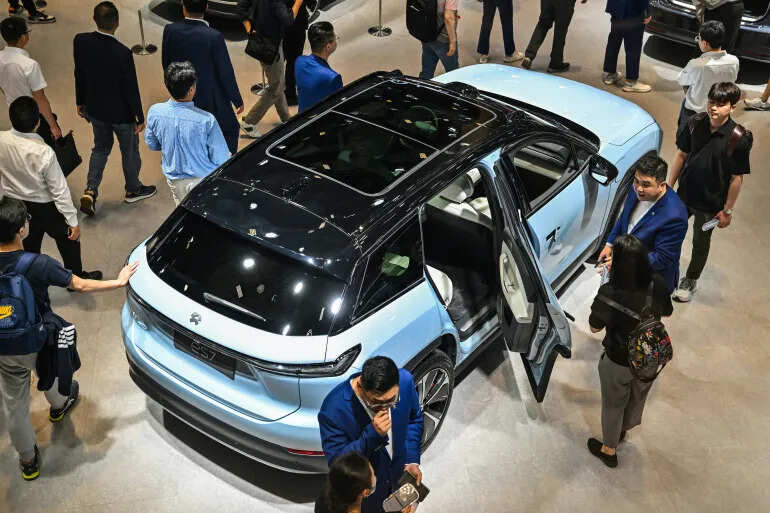
Europe’s trade chief will push Beijing for fewer restrictions on European businesses on a four-day visit to China, when he can expect tough conversations over a planned EU investigation into electric car imports.
Trade Commissioner Valdis Dombrovskis will take part in a joint economic and trade dialogue, meet Chinese officials and European companies active in China and deliver two speeches during his Sept. 23-26 trip to Shanghai and Beijing.
For the European Union, the visit is designed to renew dialogue with China after its COVID-19 closure and as EU wariness grows over Beijing’s closer ties with Moscow following Russia’s 2022 invasion of Ukraine.
Dombrovskis will arrive just over a week after the EU executive said it would investigate whether to impose punitive tariffs to protect European producers against cheaper Chinese electric vehicle imports.
The enquiry may result in a frostier reception in China, but sources with knowledge of the trip say it could usefully lead to a more focused discussion on “trade irritants”.
The EU blames its 400 billion euro (USD 426.32 billion) trade deficit partly on Chinese restrictions on European companies and says the EU market is largely open.
The European Union Chamber of Commerce in China said in a report on Wednesday that Chinese authorities were sending contradictory messages to foreign businesses. For many, a swift rebound expected after the reopening of China’s borders in January failed to materialise.
“Although official announcements aimed at improving the business environment have been released, so has a slew of national security-focused legislation, which has deepened uncertainty and raised compliance risks,” the report said.
This includes an anti-espionage law that bans the transfer of information related to national security and interests that it does not specify. It could result in punishments for foreign companies engaged in regular business.
The EU is also expected to be asked during the visit to clarify what it means by “de-risk” in the context of China.
EU officials say the bloc is seeking to curb its reliance on the world’s second largest economy, particularly for materials and products needed for its green transition, but wishes to retain trade ties.

